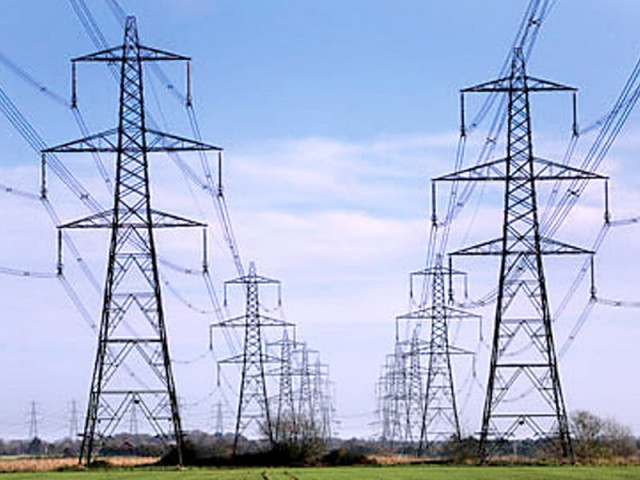Fuel adjustment charge: Pesco ordered to collect Rs17b from K-P consumers
Top court suspends PHC verdict calling FAC in electricity bills illegal.

Top court suspends PHC verdict calling FAC in electricity bills illegal. PHOTO: FILE
The Supreme Court on Tuesday ordered Peshawar Electricity Supply Company (Pesco) to collect Rs17 billion in fuel adjustment charge (FAC) from Khyber-Pakhtunkhwa (K-P) consumers’ within ten months.
A three-member bench of the apex court, headed by Chief Justice of Pakistan Tassaduq Hussain Jillani, suspended an earlier judgment of the Peshawar High Court (PHC), wherein FAC in the monthly electricity bills of K-P consumers were declared illegal and without lawful authority.
The bench also issued a notice to the Attorney General for Pakistan (AGP) and adjourned the hearing for an indefinite period.
Striking down the PHC’s decision, the top court observed that the judgment was delivered without hearing the AGP’s version. The court questioned whether the PHC had violated the apex court’s judgement by declaring Section 31 (4) of Nepra Act 1997 not applicable.
The judgment handed down by former PHC chief justice Dost Muhammad Khan and Justice Nisar Hussain Khan states that neither the provisions of National Electric Power Regularity Authority (Nepra) Act, 1997 nor any part of the Nepra Rules, 1998 expressly or otherwise authorises the authority to fix a uniform rate of tariff for the whole country, particularly for K-P.
Moreover, the court ordered that K-P’s consumers be repaid by Nepra or the federal government either as readjustment in electricity bills to a maximum of 30 installments or in lump sum amount.
Pesco’s petition has objected to the refund, saying it is not in a position, financially or as per the hierarchy of the power sector, to provide such funds to consumers.
The petition also submitted that charging of FAC from Pesco’s consumers does not violate Article 25 of the Constitution nor is it discriminatory in any manner.
Pesco’s petition submitted that the high court has failed to appreciate that all hydel power stations, transmission lines and distribution networks in the country have been set up by the federal government and none of the provinces purchase electricity in bulk from the national grid, adding that Article 157 (2) is not applicable in this matter.
It submitted that any grievance with respect to Net Hydel Profit (NHP) may only be raised by the province concerned before the Council of Common Interest (CCI) as per its mandate under Article 161 (2) of the Constitution.
The chief justice observed that it is the CCI’s duty to settle financial matters between the province and centre, adding that due to the court’s decisions, the relationship between the centre and province may be affected.
Pesco’s petition stated that provisions of the Nepra Act and the tariff rules state that the tariff, rates, charges and other terms and conditions for the supply of electric power services by generation, transmission and distribution companies shall be approved by Nepra and thereafter notified by the federal government.
The petition contended that fuel price adjustment mechanism is the mechanism for the recovery of cost of generation of electricity, which is also validated by the superior courts, adding that it is not an extra burden on consumers; rather, it forms a part of the overall cost, which originates from the power producers.
Earlier, the high court had allowed 72 identical writ petitions against the imposition of FAC in the bills.
Published in The Express Tribune, April 2nd, 2014.













COMMENTS
Comments are moderated and generally will be posted if they are on-topic and not abusive.
For more information, please see our Comments FAQ